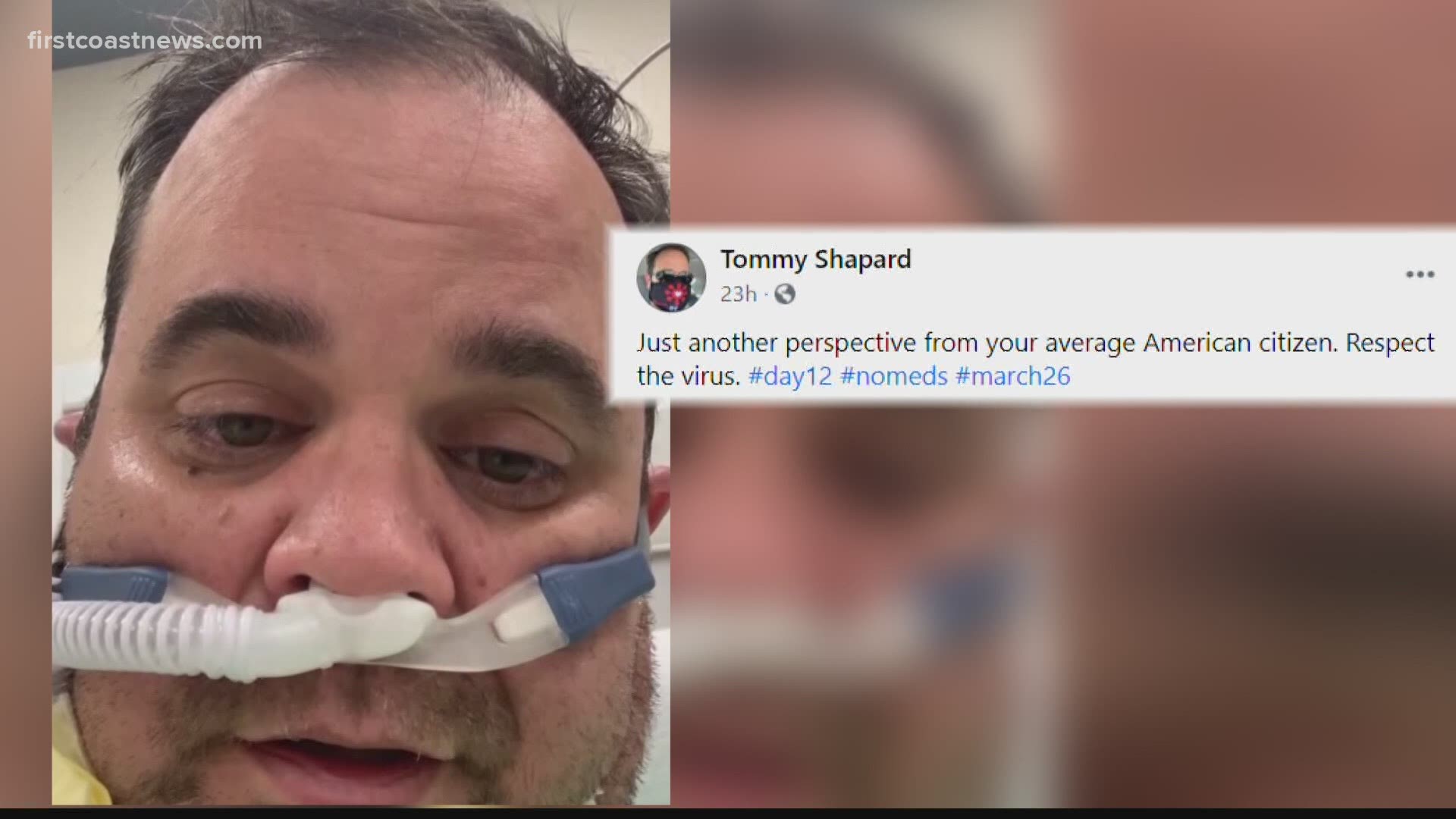JACKSONVILLE, Fla — Tuesday, President Donald Trump spent his second night back in the White House. It came after his doctor said Tuesday that Trump reported no symptoms.
Tuesday also comes six months after Tommy Shapard said COVID-19 almost killed him. He was just able to watch one of the goodbye videos he sent his wife from a COVID ICU for the first time.
"They're going to put me on a ventilator," Shapard said in the video.
"Evidentially my lungs are in really bad shape. The disease is strong. I'm anxious, but hopefully this gives my body a chance to win," Shapard continued in the video.
"The first part, I was like, 'Wow. That really shows how out of breath I was. It shows the fear in my eyes,'" Shapard said while re-watching the video.
Shapard said he shared the video to Facebook in response to one of President Donald Trump's tweets about the president's experience with COVID-19.
"I learned so much about Coronavirus," Trump said in a video posted to Twitter Monday. "Don't let it dominate you. Don't be afraid of it."
"My first reaction was disappointment. I had hoped that whatever he had gone through, we don't know what he has gone through, but whatever he has gone through, I would hope that he would find some sympathy," Shapard said.
Shapard said he wasn't surprised by the president's comments, but did hope he would've expressed some empathy for those who have suffered due to the virus.
"I think he's trying to communicate that we need to be smart and move through all of this. That's my optimistic, positive side, but that's definitely not how it comes across," Shapard said.
Shapard wrote in his post he wanted to give "perspective from your average American citizen."
"I hope he recovers fully. He definitely gets the care that the president is afforded, and that's good. That's a good thing. But yes, the rest of us, especially early on, did not," he said.
Nurse Tanaesa Costa has treated COVID-19 patients, some of who never got to go home. She said the president's tweets are not only disrespectful to those who died and to survivors, but also health care workers.
"I heard it and I was like, 'he cannot be this insensitive," Costa said. "He cannot be so far removed from what's really going on in people's lives, to how it's really affecting them. This has got to be a joke.' And then I go on Twitter and there it is and I'm like 'are you serious.'"
Both Costa and Shapard said they want their perspectives to show that this virus can still be a threat.
"We have to respect the virus and we have to find ways to live and navigate life. We have to respect the novel virus because of the chances it can take someone to a place they don't want to go," Shapard said.

